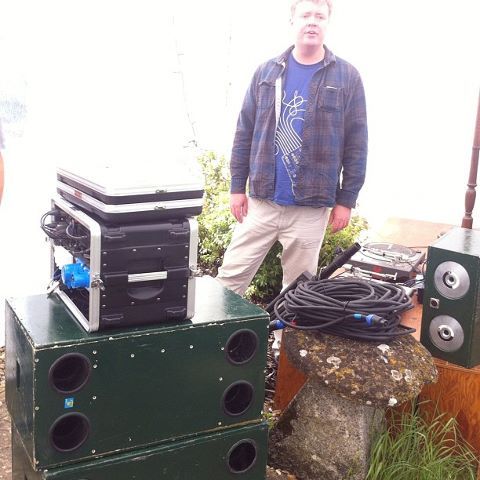- Posts: 2
- Thank you received: 0
Analoug Vs Digi EQ
- guest
-
 Topic Author
Topic Author
- Visitor
-

17 years 8 months ago #1335
by guest
Analoug Vs Digi EQ was created by guest
I'm just wondering...
I know EQ will effect allsorts of things other than just the relative level / freq response of a system... however, I'm not clear that this is the case with digi EQ?
Is it the same? does a digi EQ have the same effect as an analog one?
I know EQ will effect allsorts of things other than just the relative level / freq response of a system... however, I'm not clear that this is the case with digi EQ?
Is it the same? does a digi EQ have the same effect as an analog one?
Please Log in or Create an account to join the conversation.
- flat-bill
-

- Offline
- New Member
-

Less
More
17 years 8 months ago #1337
by flat-bill
Freedom is not worth having if it does not include the freedom to make mistakes.
Replied by flat-bill on topic Analoug Vs Digi EQ
Erm, Its a bit of an odd, question, Im not sure what you really mean? Phase shift? It depends on your graphic, etc etc.
Freedom is not worth having if it does not include the freedom to make mistakes.
Please Log in or Create an account to join the conversation.
- jsg
-

- Offline
- Elite Member
-

Less
More
- Posts: 236
- Thank you received: 0
17 years 8 months ago #1350
by jsg
Ars est celare artem
Replied by jsg on topic Analoug Vs Digi EQ
Most likely you'll get the same kind of response as analogue equipment from amplitude and phase POV. This is because even though DSP is a lot more flexible than analogue filters, the underlying maths says you can't really do much better than what analogue filters give you if you need a minimal insertion delay (which you do for live work).
Fundamentally, you can't modify the frequency content of a signal in real time without incurring delay of some sort. In digital systems you can have a constant group delay (=linear phase), but that would mean adding significant delay to everything that goes through the system. Doing it like an analogue filter gives a variable group delay but it's smaller and proportional to the amount of EQ adjustment you apply (minimum phase).
Fundamentally, you can't modify the frequency content of a signal in real time without incurring delay of some sort. In digital systems you can have a constant group delay (=linear phase), but that would mean adding significant delay to everything that goes through the system. Doing it like an analogue filter gives a variable group delay but it's smaller and proportional to the amount of EQ adjustment you apply (minimum phase).
Ars est celare artem
Please Log in or Create an account to join the conversation.
- guest
-
 Topic Author
Topic Author
- Visitor
-

17 years 8 months ago #1361
by guest
Replied by guest on topic Analoug Vs Digi EQ
Ahaha... soo, from that I think I understand that with a digi EQ you get a delay on the whole spectrum, with analogue you get a delay only on the freqaffected by the EQ.
I will check the manual on my digi EQ and see what kinda insertion delay it gives.. can't be much (I certainly cannot tell the difference).
Cheers JSG.. enlightening once again!
Adam.
I will check the manual on my digi EQ and see what kinda insertion delay it gives.. can't be much (I certainly cannot tell the difference).
Cheers JSG.. enlightening once again!
Adam.
Please Log in or Create an account to join the conversation.
- jsg
-

- Offline
- Elite Member
-

Less
More
- Posts: 236
- Thank you received: 0
17 years 8 months ago #1362
by jsg
Ars est celare artem
Replied by jsg on topic Analoug Vs Digi EQ
Hi
No, a digi eq can do it either way and I suspect it would choose to do it the same way as an analogue eq otherwise the constant delay would be too much for live use. But of course each manufacturer can make their own choices.
Cheers, John
Edited by: jsg
No, a digi eq can do it either way and I suspect it would choose to do it the same way as an analogue eq otherwise the constant delay would be too much for live use. But of course each manufacturer can make their own choices.
Cheers, John
Edited by: jsg
Ars est celare artem
Please Log in or Create an account to join the conversation.
Time to create page: 0.174 seconds